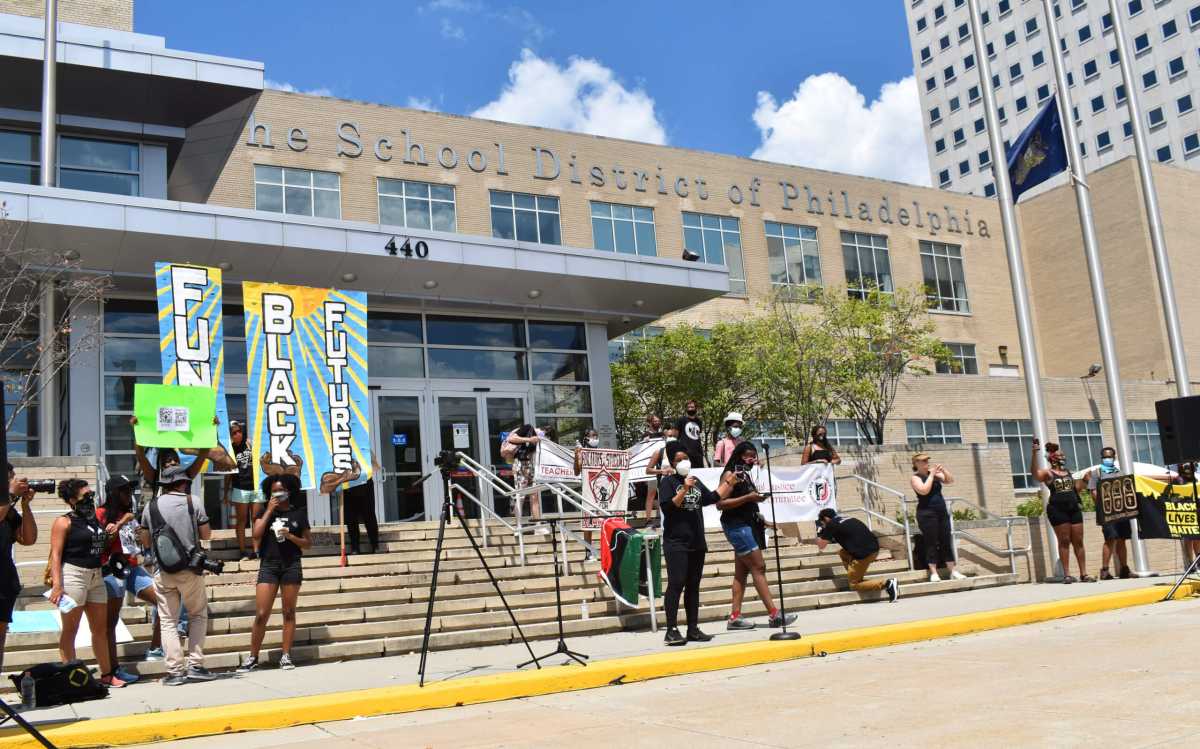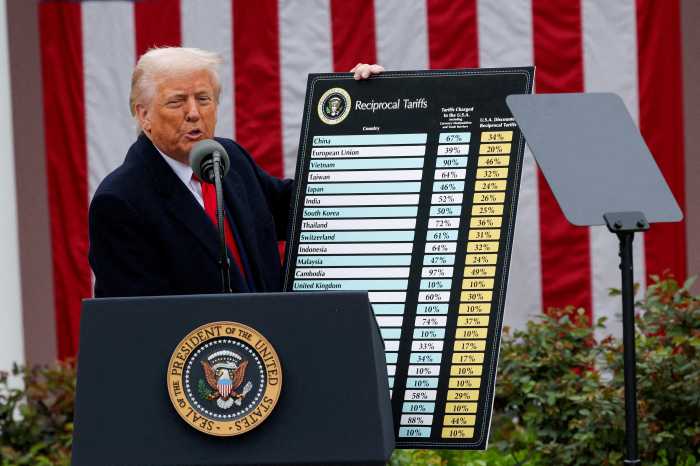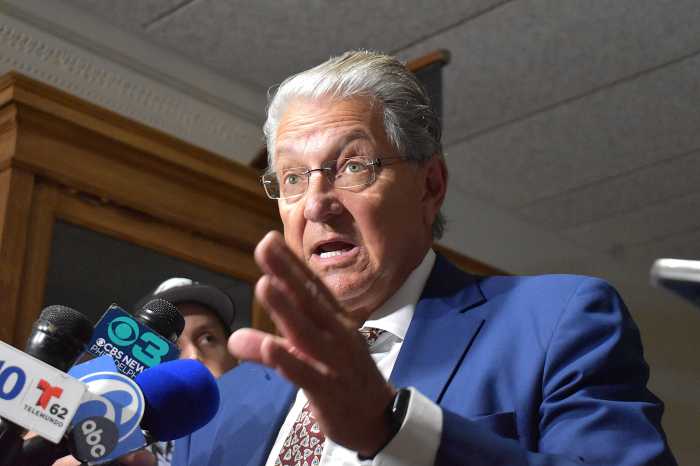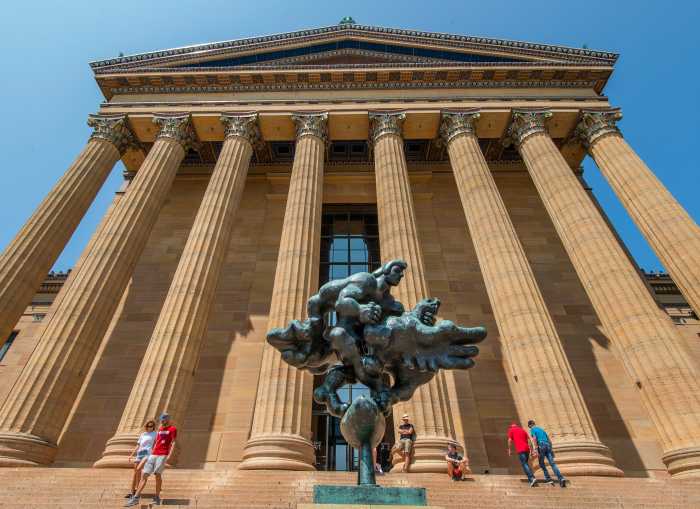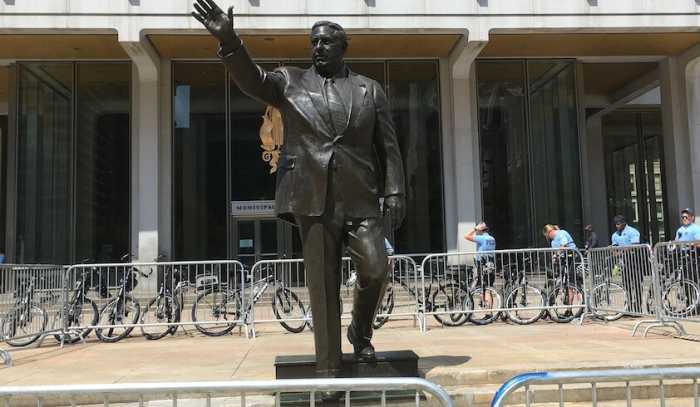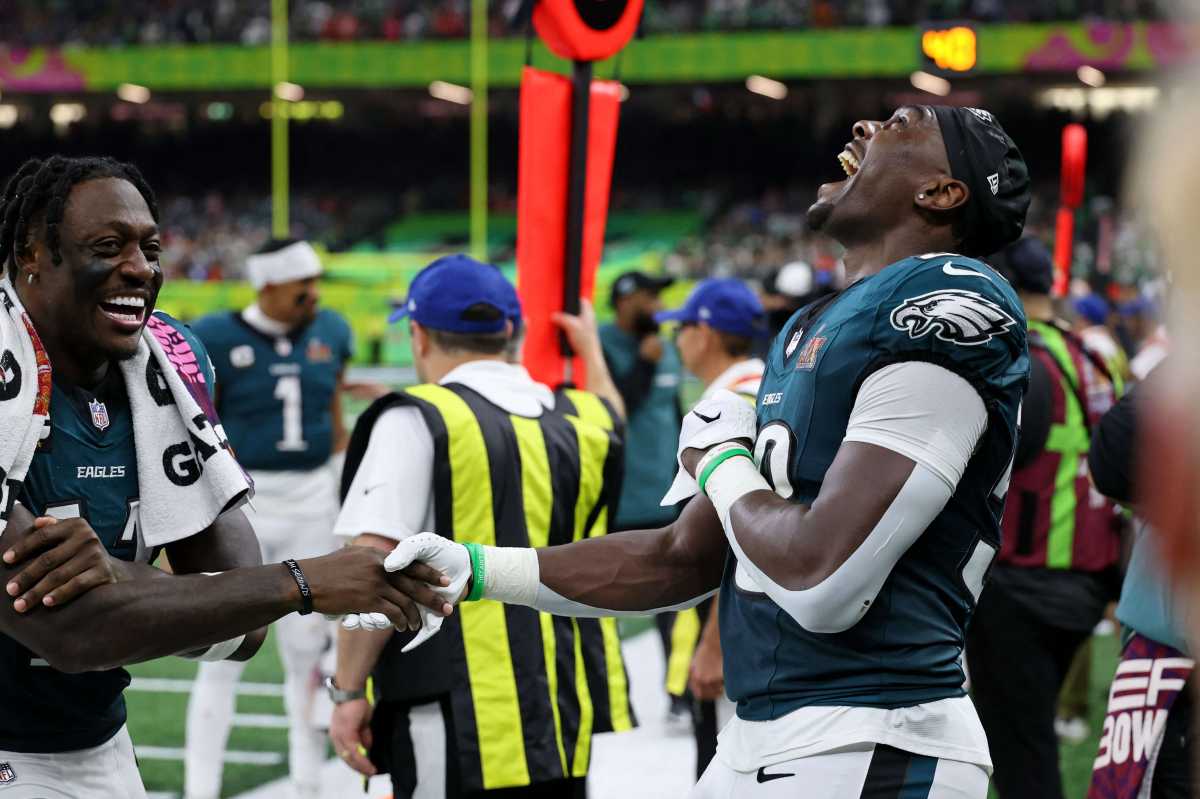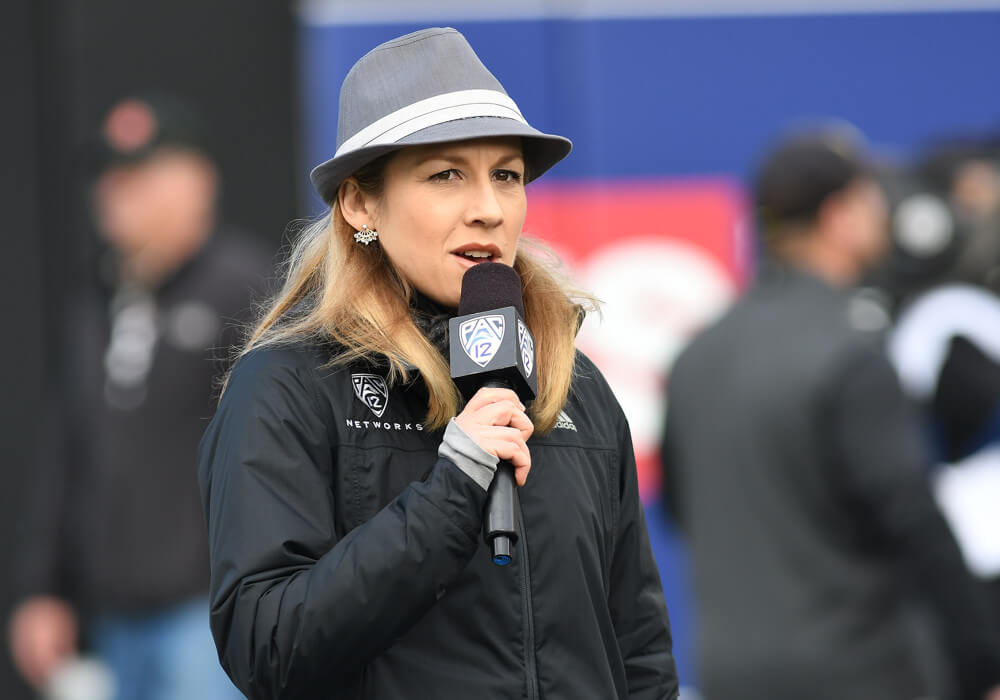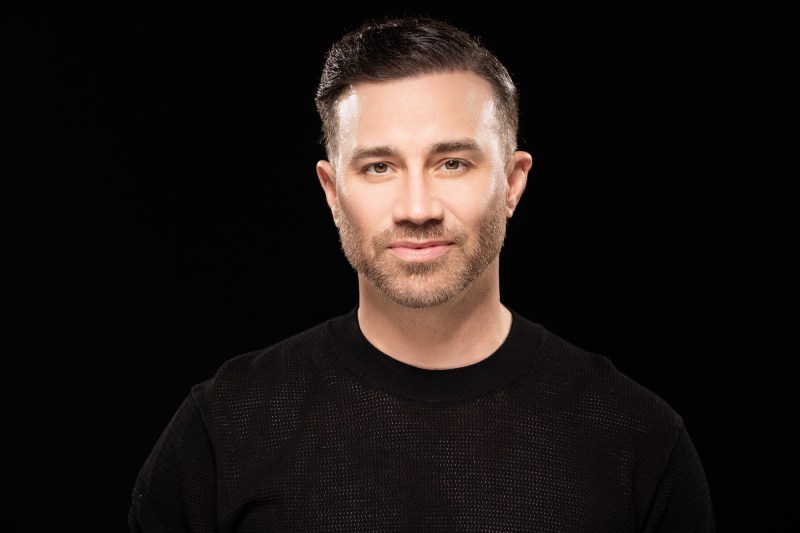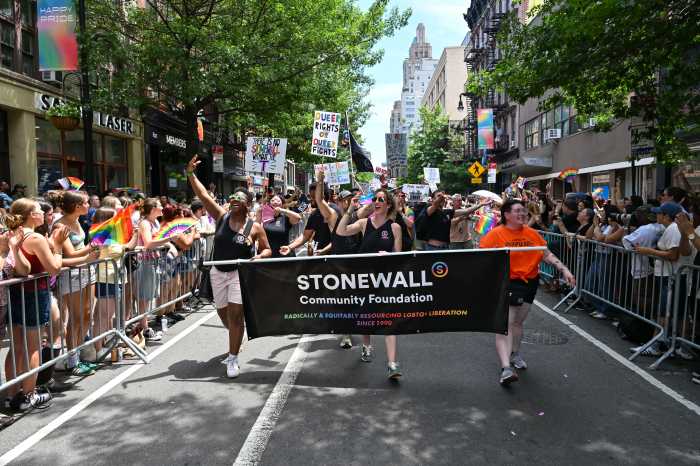Youma Diabira has only had three Black teachers since kindergarten.
The rising senior at Central High School said teachers have regularly assigned her to read Homer and Shakespeare, but few titles penned by Black authors.
“I learn more from books about my African American history than I’ve ever learned in any classroom,” said Diabira, who is Black.
“An expansion of our curriculum is not a suggestion, it is a must,” she added. “I can tell you more about Pompeii than W. E. B. DuBois.”
Changes to the way history and English is taught, as well as bringing in a more diverse pool of teachers, were among the calls made by protesters who gathered Sunday at City Hall and marched to the School District of Philadelphia’s headquarters at 440 N. Broad Street.
Many in the crowd were teachers and students, and a line of drummers led them up Broad Street in the sweltering heat. Almost all wore masks, and volunteers provided free water bottles and snacks to demonstrators.
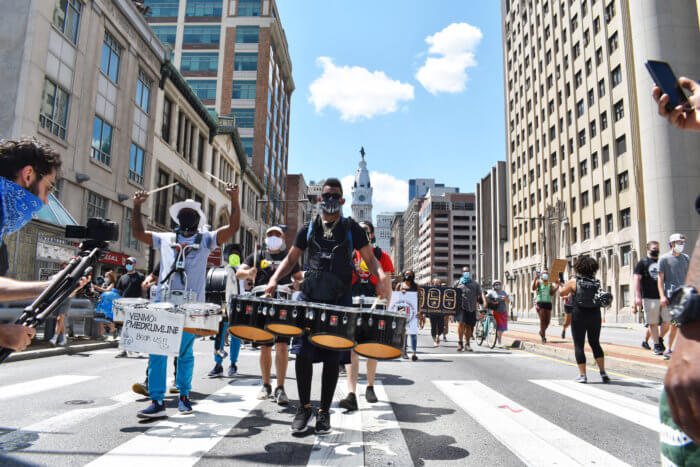
“We have nothing to lose but these chains, and, right now, these chains are the white supremacist educational system,” said Keziah Ridgeway, a teacher at Northeast High School who helped organize the rally.
The event was backed by a litany of groups, including the Melanated Educators Collective, the Racial Justice Organizing Committee and the Philadelphia Student Union.
The Melanated Educators Collective and Racial Justice Organizing Committee released a list of 10 demands, which included the complete removal of school police, mandatory anti-racist training for all staff and increased opportunities for Black students.
Three Board of Education members attended the rally, according to organizers.
Days ago, the district announced the formation of an equity coalition. In a statement Sunday, Superintendent William Hite said the coalition is working on creating an equity audit and an action plan that highlights short-term and long-term goals.
“We will have professional development sessions designed to continue these very necessary conversations to bring healing and create opportunities for change, change that eradicates racist ideologies and behaviors within our own lives in an effort to dismantle racism within our school system,” Hite said. “This work will not be easy, nor will it be quick.”
He said he is looking forward to working with the Melanated Educators Collective and the Racial Justice Organizing Committee.
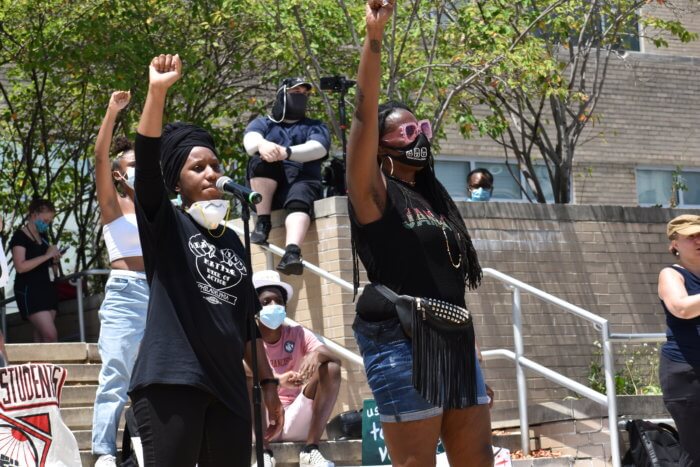
Since protests erupted following the death of George Floyd at the hands of Minneapolis police, student groups and advocates have been pushing for officers to be removed from schools.
About 17,000 people have signed an online petition calling for the district to get rid of school-based officers and end cooperation agreements with the Philadelphia Police Department.
“We need to make sure that our kids understand that they are not criminals,” City Councilmember Kendra Brooks said at Sunday’s rally. “You are not a target.”
School officials late last month said officers would be wearing uniforms with a “softer look,” according to the Philadelphia Public School Notebook.
For the coming year, security personnel will also be called “safety officers,” as opposed to school police. School officers do not carry guns or have arresting power.
Activists said they would like to see the money spent on officers redirected to hire counselors, social workers and other staff who could help de-escalate situations.
The Melanated Educators Collective and the Racial Justice Organizing Committee also demanded the district implement mandatory indigenous studies and African American history courses for all students K-12, as well as an ethnic studies class as an elective.
Philadelphia public high school students have been required to take African American history for 15 years; however, Ridgeway said many teachers just go from slavery to a watered-down version of Martin Luther King Jr.
Demonstrators on Sunday also raised concerns about the access Black students have to special admissions schools, known as magnets, and advanced programs, like AP courses.
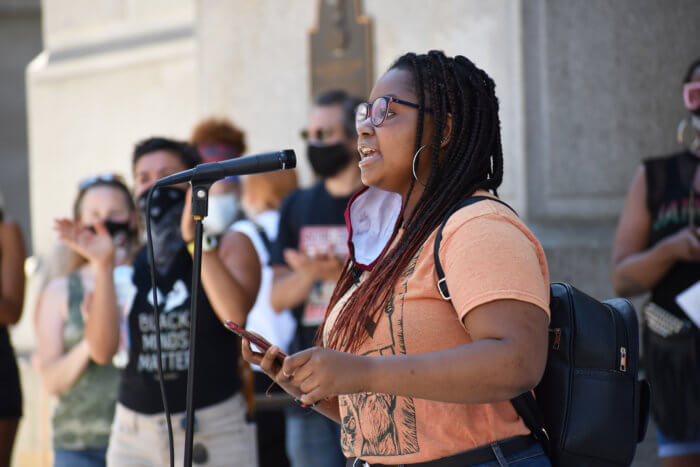
Organizers said Black students are underrepresented at magnets and called on the district to reserve at least 35 percent of slots for Black applicants.
A group of students from Masterman School, perhaps the city’s most elite magnet, continued marching from the district’s headquarters to their school at 17th and Spring Garden streets.
Sheyla Street, a senior at Central, previously attended Masterman, which serves middle and high school students, and remembers a teacher questioning why she was isolating herself from other students.
“How can you connect with students who ask you when you are going to get over slavery or if they can have the N-word pass?” she said. “How can you connect with teachers who stand by and watch this happen and do not react?”
“We need systematic changes that remove the barriers for Black students to be accepted into rigorous courses and schools,” added Street, whose father, Sharif Street, a state senator and Central graduate, also spoke at the rally.



